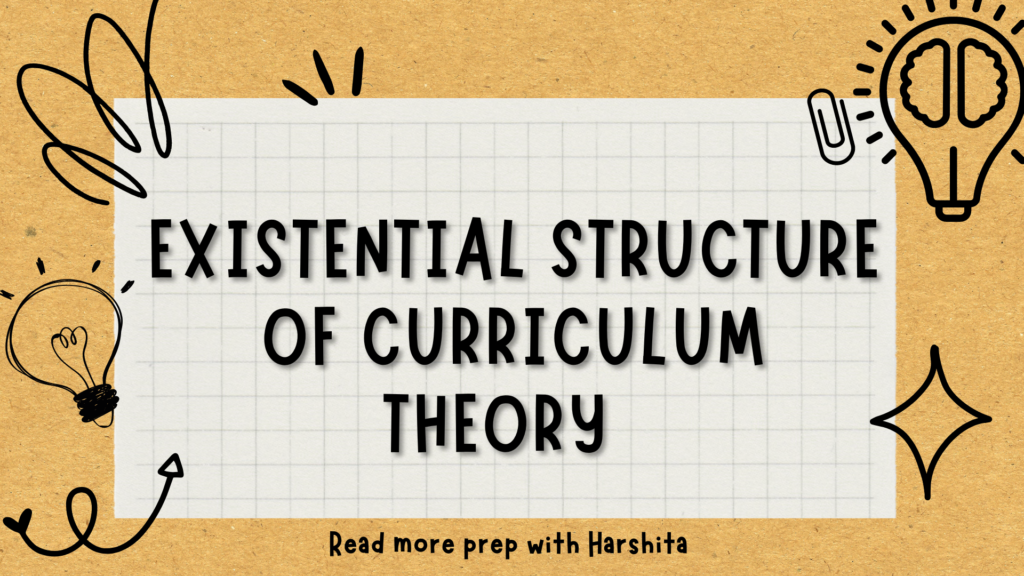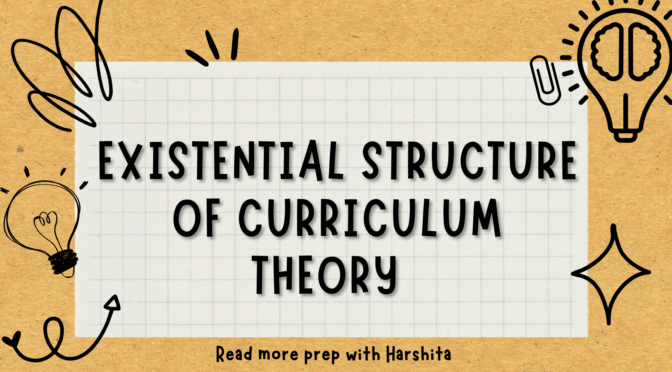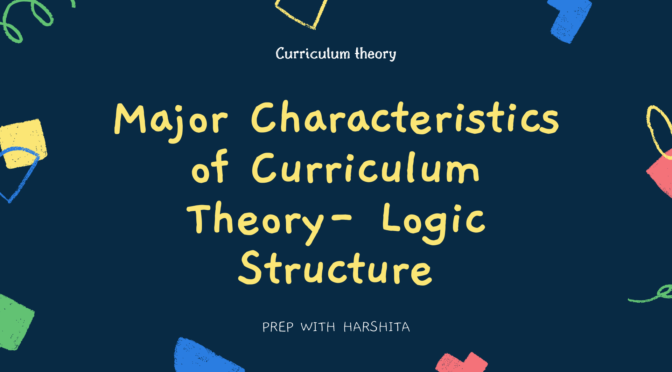The existential structure of curriculum focuses on the existential aspects of education, emphasizing the personal and subjective dimensions of learning and human existence. It draws from existential philosophy and psychology to inform curriculum design and aims to foster self-awareness, personal growth, and the exploration of meaning and purpose in education.
Here are some key concepts related to the existential structure of curriculum:
- Personal Meaning: This aspect recognizes the importance of personal meaning and relevance in the learning process. It emphasizes the need for students to connect with the subject matter and find personal significance in what they are learning.
- Authenticity: The existential structure of curriculum values authenticity and encourages students to engage with genuine, real-world experiences. It seeks to foster a sense of authenticity by incorporating activities and learning opportunities that are relevant to students’ lives and experiences.
- Self-Reflection: This element emphasizes self-reflection and introspection as integral parts of the learning process. Curriculum design based on the existential structure encourages students to reflect on their values, beliefs, and experiences, and to critically examine their own assumptions and perspectives.
- Freedom and Responsibility: Existentialism places great importance on individual freedom and personal responsibility. It recognizes the need to provide students with opportunities to make choices and take ownership of their learning. It encourages students to become active participants in their education and take responsibility for their own growth and development.
- Authentic Relationships: It acknowledges the significance of authentic relationships between students and teachers. It recognizes that meaningful learning often occurs within the context of supportive and genuine relationships, where students feel seen, heard, and valued.
By integrating these existential elements into curriculum design, educators aim to create a learning environment that promotes personal growth, self-awareness, and the exploration of meaning and purpose in students’ lives.
Also Read: Organization of Content

Also Visit: Prep with Harshita



